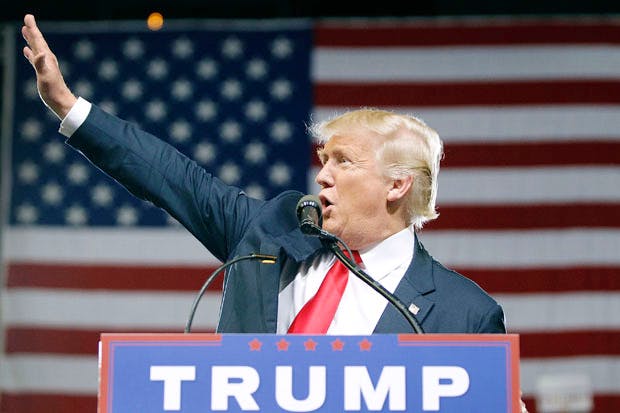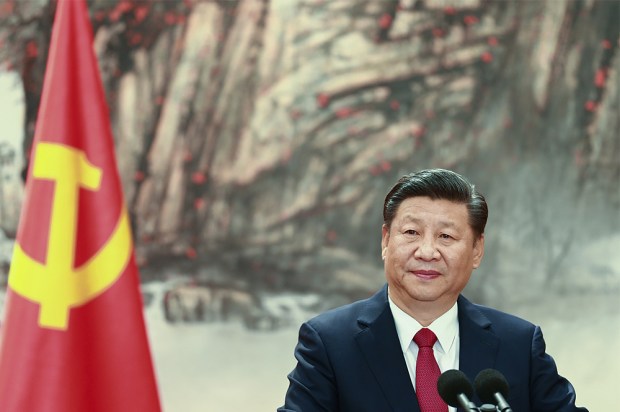Good news: ‘My sources in the Gulf tell me they’re poised with big cash to buy into sterling, UK equities and property on any weakness,’ says an email from a reader who does business across the Middle East. Will the phenomenon I once called ‘the Curse of Qatar’ be the horse that pulls us out of the post-referendum quagmire and tramples the short-sellers? Might it even be strong enough to save the professional services firm, dependent on inward investors, whose owner told me he expects to make 50 of his 180 staff redundant if the vote goes the wrong way?
We have flirted with what the Washington Post called ‘an act of economic insanity’. If we have actually committed it, we won’t know for many months whether it was insane or inspired, and we’ll never know what the alternative would have looked like. Either way — with or without Osborne’s ‘revenge’ budget, if he’s still in office — the outcome will reshape all investment and consumer behaviour from Friday onwards.
So I’d be foolish to comment on most UK business stories this week. Except perhaps to say ‘I told you so’ in relation to Sir Philip Green’s six-hour select committee grilling, which extracted no useful information from the pugnacious former BHS owner while failing to humiliate him. And to salute an 11 per cent sales increase at Majestic Wines, as the nation has uncorked bottle after bottle to fuel Brexit argument. And to wonder whether cunning old George Soros — busy talking up the prospect of market mayhem — is long or short of sterling, or poised to cash in on volatility whatever happens.
Trump in front?
Let me turn instead to my friends across the Atlantic, and the act of insanity they may be about to commit for themselves. Freddy Gray told us last week that ‘The Donald is doing a brilliant job of derailing his campaign’. But what if The Donald isn’t brilliant enough, and sufficient numbers of job-threatened, Clinton-hating Americans are stupid enough to vote for him? A US Gallup poll in May found Trump the preferred candidate to handle the economy, jobs, taxes, ‘the size and efficiency of the federal government’ and ‘government regulation of Wall Street and banks’ by an average margin of 8 per cent ahead of Hillary; on the issue of the federal budget deficit, he was 18 points ahead. Other pollsters find big majorities in favour of restricting imports to protect jobs — a pillar of Trumpery. American voters are strongly driven by fears for their own job security and spending power, so those are important areas in which to be winning the argument, however crazed your rhetoric.
And by the way: if it turns out we voted Leave, and the short-term consequences are as predicted by just about everyone from Washington to Wagga Wagga, which means negative for global trade and investment as well as for our own economy, then The Donald’s chances of winning go up a notch, because anything that’s worse for American jobs is better for him. And although Wall Street (in a CNBC survey of money managers, investment strategists and economists) is still persuaded by 80 to 15 that Trump won’t win, it also thinks by 45 to 30 that he has ‘the best economic policies’ — because the Street doesn’t like Hillary’s proposals to raise wages, increase federal spending and tighten the tax code for millionaires.
So if we voted to Remain we have reinforced Hillary’s likelihood of victory. But if Wall Street’s judgment is right, then we may have nudged America towards a less favourable economic outcome. And that will rebound on us, because what happens over there is invariably echoed over here. As Brussels technocrats would no doubt like to remind us, voting is a dangerous business.
Trump in China?
‘We can’t continue to allow China to rape our country… It’s the greatest theft in the history of the world.’ That was Donald Trump’s measured view of US-China trade relations, expressed at a recent campaign rally. So I’m grateful to Aaron Mak of –Politico for explaining why The Donald has higher approval ratings in China (54 per cent in one recent survey) than at home in the US (around 40 per cent). It’s because the Chinese admire his ‘glitzy’ business and media success and believe the acumen behind his bluster would translate into foreign policy pragmatism — rather than lectures on human rights from Hillary, or gunboats in the South China Sea from a traditional Republican White House.
Trump reinforces that view by boasting of his own US-China trade success: ‘I sell them condos.’ And Chinese companies have even paid him the compliment of stealing his name — one example being Shenzen Trump Industries, a manufacturer of luxury toilet seats. Perhaps President Hillary will offer him the ambassadorship to Beijing.
A better world
We vote for a better world, or for the least bad world on offer — however mendacious or overhyped. But we also cling to the consolation that in the long run it won’t make a heap of difference. The great Warren Buffett has endorsed Hillary but has also said his company Berkshire Hathaway ‘will continue to do fine’ even if Trump wins.
As Nigel Lawson argues, most of the world’s economically successful nations are not members of the European Union; but as another reader’s email points out, one nation that ‘projects its economy, industry and services in every market in the world better than we do’ is Germany, operating from the heart of the EU. The truth is that salvation and prosperity are very largely in our own hands: the hands, that is, of our entrepreneurs, engineers, designers, salesmen, professional service providers and educators. Whatever Friday’s result, they had
Got something to add? Join the discussion and comment below.
Get 10 issues for just $10
Subscribe to The Spectator Australia today for the next 10 magazine issues, plus full online access, for just $10.















Comments
Don't miss out
Join the conversation with other Spectator Australia readers. Subscribe to leave a comment.
SUBSCRIBEAlready a subscriber? Log in